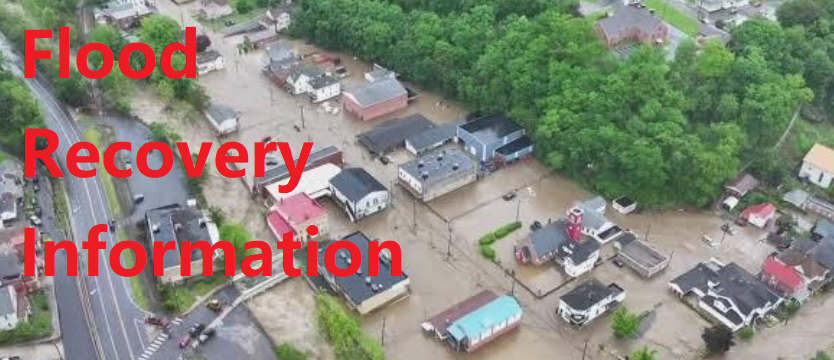April 15th, 2025 by WCBC Radio
The final day of the legislative session is often one of the most intense. As time runs out, many bills that could meaningfully improve our state or address important local issues unfortunately fail to advance. This can be an emotional moment for those who have invested significant effort into these proposals. With tensions running high, words are sometimes spoken in frustration that may later be regretted. That is one reason the Legislature traditionally does not hold interim meetings during the month immediately following the end of session. This year, the first interim meetings are scheduled for June 22 through 24 at Stonewall Resort State Park, allowing time for emotions to settle and for a more thoughtful return to legislative work.
One of the more controversial bills on the final day of the session was Senate Bill 299, which passed the House by a vote of 86 to 12. The bill is intended to protect minors from making irreversible medical decisions at an age when they may not fully grasp the long-term consequences. The Legislature believes that children should not be making adult decisions without adult understanding, particularly when it comes to life-altering medical procedures. As commentator Bill Maher once noted, "I wanted to be a pirate. Thank God nobody took me seriously and scheduled me for eye removal and peg leg surgery," emphasizing the need for caution when children express serious but potentially fleeting desires.
The failure of House Bill 2190 to pass was one of the more disappointing outcomes of the session. The bill would have included Potomac State College in the definition of a community and technical college for purposes of participating in the “Learn and Earn Program.” This important change was introduced by myself, with support from Delegate Hillenbrand and others.
There is a clear and growing need for workforce training in our region, particularly for local manufacturing operations. Estimates indicate that approximately 400 machinists will need to be trained over the next five years. These are high-paying, in-demand jobs that represent a significant economic opportunity for our area. The “Learn and Earn” Program would help make that training accessible and efficient.
The bill passed the House overwhelmingly, with a vote of 93 to 3, and also advanced through the Senate Education Committee. However, it stalled in Senate Finance and was never brought to a vote, despite having no fiscal impact. One of our two Senators is the Senate President. That raises a fair and pressing question—why was this bill allowed to die?
House Bill 3279 is a clear win for Potomac State College and our land-grant university system. The bill requires that one of the Governor’s appointees to the West Virginia University Board be a graduate of Potomac State, recognizing the college’s important role within the WVU system and its value to our region.
The bill also ensures that both the WVU and West Virginia State University boards include a member with a background in agriculture, forestry, or related sciences. This supports the original mission of land-grant institutions, which were created to provide practical education in agriculture and the mechanical arts. By including this representation, the bill helps keep our universities focused on serving rural communities and key industries across the state.
In the final hours of the Legislative Session, we were able to secure a meaningful tribute to someone who gave so much to our community. House Concurrent Resolution 29 passed, officially naming 2.9 miles of Knobley Road as the “Sheriff Jeremy Taylor Memorial Road.”
This recognition honors Sheriff Taylor’s lifetime of service to Mineral County—through his work in law enforcement, emergency response, and community leadership. His dedication ran deep, from his early days with the Fountain Volunteer Fire Department to his two terms as Sheriff. This designation is a lasting reminder of his commitment, and it ensures his memory will live on along a road he traveled often, in the county he proudly served.
One of the lasting contributions inspired by Sheriff Jeremy Taylor was the clarification of state law regarding the purchase of service weapons by law enforcement officers upon separation from service. Before his passing, Jeremy had requested this change to the law, and I introduced the bill that would eventually become House Bill 3181. The bill gained strong support, with co-sponsors that included former sheriffs, law enforcement officers, magistrates, and others who understood the importance of honoring those who serve. Fittingly, the bill passed both the House and the Senate unanimously—a clear statement of respect and recognition from the entire Legislature.
Jeremy believed that officers who had honorably served their communities should have the opportunity to keep the weapon they carried in the line of duty—a symbol of their service and sacrifice. Prior to this change, agencies like the State Police, Division of Natural Resources, and a few others had code provisions allowing their officers to purchase their issued weapons upon retirement or honorable separation. However, it was unclear whether this same courtesy extended to sheriffs completing their elected terms. Additionally, no clear provisions existed for university police officers, campus law enforcement, or other specialized agencies, leaving many officers ineligible or in limbo under the law.
The newly passed code section now ensures equal treatment for all law enforcement officers across West Virginia. Regardless of their agency—whether they served in a sheriff’s department, state agency, campus police, or elsewhere—any officer who separates honorably and meets basic safety and legal criteria will be allowed to purchase their issued service weapon at cost.
This is a simple but meaningful gesture of respect and appreciation, and it stands as one more example of Jeremy Taylor’s positive influence. His commitment to fairness and his advocacy for the law enforcement community continue to shape our state for the better.
As with House Bill 3181, the majority of bills that successfully passed both the House and Senate are now awaiting the Governor’s signature to become law. If you believe in the importance of these measures and want to see them enacted, I encourage you to contact the Governor’s Office at (304) 558 2000 and share your support.
Although the legislative session has come to a close, my work on your behalf continues. Whether you need assistance with a state agency, have an idea that could become a future bill, or want to share thoughts on how we can make West Virginia an even better place to live, work, and raise a family, I am here to help. Please do not hesitate to reach out to me at (304) 340 3191 or by email at Gary.Howell@WVHouse.gov.




.jpg)













